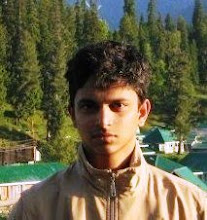Merck orchestra from Germany enthralled classical music lovers in Goa
Nigel Britto
The thousand-odd that thronged Kala Academy on Monday evening entered the DMK auditorium with high expectations; after all, this concert was pitted as the high point of the state's scattered classical music calendar. The long queue they had to stand in all seemed worth it a few hours later, when they walked happily away, after giving the orchestra three standing ovations and demanding three encores, all of which were obliged. Clearly, the Deutsche Philharmonie Merck didn't disappoint.
Clad in brilliant black, the German orchestra won hearts and minds straight away, commencing with a startlingly beautiful rendition of Jana Gana Mana, closely followed by their own national hymn, Deutschlandlied, which set the mood for the evening. It also established the reason for the concert-60 years of Indo-German friendship. After a little diplomatic rhetoric and a few instructions from the compere, Fr Eufemiano Miranda (switch off mobiles, don't cough, and don't clap between movements), the orchestra got down to business.
The selected repertoire comprised Beethoven, Mozart and Brahms; the beauty of the orchestra's sound, especially that of its brass section, was notable right from the beginning. Leonore Overture No 3 Op 72, one of the four overtures Beethoven wrote for his only opera Fidelio, was first on the list. Ideally, an Overture sets the mood for the opera to follow; in this case, its near-flawless construction makes the opera itself slightly redundant, perhaps explaining its popularity with orchestras playing it in isolation of Fidelio.
The DPM's rendition of the Overture, in little over 13 minutes, captured the entire trajectory of the opera, from imprisonment to triumph, complete with an off-stage trumpet call that led the surge towards a thrilling and electrifying coda, symbolizing the lofty ideals of liberty and emancipation Fidelio is about, and which is also in sync with Beethoven's own political beliefs.
The conductor, Wolfgang Heinzel, led the pack with aplomb; he had the air of a wizard armed with a wand and engaged in a fierce duel; the orchestra was no different; they'd played the previous night in New Delhi and woken up at 4 am on Tuesday morning to commence their 16-hour journey here, after which they didn't sleep. Theoretically, they should have been tired. No sign of it. Only a few musicians sat comfortably in their seats; the rest were perched as if on air-bows galloping and heads swirling in tandem with their conductor's baton, sending an ominous warning to any tiredness that might come creeping by.
After Beethoven came Concerto No.2 in D major; it is essentially an oboe concerto reworked for the flute by Mozart, whose dislike for the instrument is legendary ("I am... always reluctant if I have to write for an instrument I can't stand," he once wrote.) Thankfully, one needn't take the great man's statement seriously. The concerto was the highlight of the evening; the affable and uber-expressive soloist Henrik Wiese didn't need sheet music; like the Pied Piper of Hamelin, he relied completely on memory for all three movements to lead the show from where Beethoven left, displaying an impish sense of humour and phenomenal breath control that kept the audience engaged throughout.
The last item was Brahms' Symphony No 3 in F major, the shortest of his four symphonies. It may not possess the explosiveness of his first or comparative serenity of the second, and is sometimes considered a tad boring. Not this performance; the apprehension at seeing a moderately-sized orchestra trying to tackle a Brahms symphony was soon shot away with great vigour. The orchestra, over 35 minutes, constructed a distinct picture of an old Brahms reminiscing about life while taking a walk in the woods, the solitude of Poco Allegretto (little, if any, Allegretto) giving way to a high voltage Allegro finale, resulting in a long standing ovation that pulled the conductor back and forced three encores out of the orchestra.
Two of them were Brahms' Hungarian dances by conductor's choice, and one short flute solo after a lady in the audience specifically asked for the return of Wiese, who quickly became a crowd favourite after his virtuosic performance earlier on. The orchestra's enthusiasm seemed to have rubbed off on the crowd, who were responsible for only a couple of mobile alarms, a few cough concertos between movements, and the odd whining baby, all of which signified considerable progress. When all was done, the musicians trooped out of Kala Academy, instruments and baggage in tow, to earn themselves a well-deserved rest.
This article was first published on The Times of India's Goa edition dated September 29, 2011.

No comments:
Post a Comment